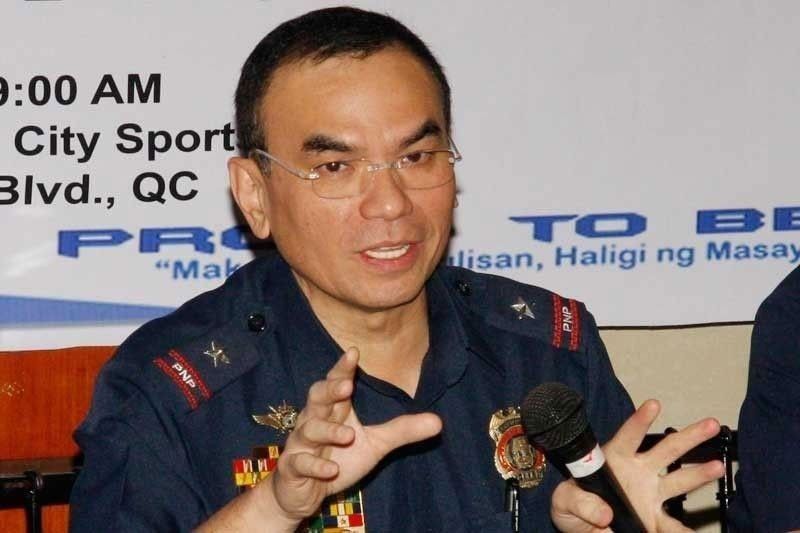Under GCQ, still best to stay home

MANILA, Philippines — The order for the public to “stay at home” remains despite the shift to a more lenient general community quarantine (GCQ) in Metro Manila tomorrow, according to a police official.
Police Lt. Gen. Guillermo Eleazar, commander of Joint Task Force Coronavirus Shield, reminded the public that the shift to GCQ does not mean that they can now go out, as there will still be restrictions placed on the movement of people.
He noted that mass gatherings or visiting friends and relatives are still not allowed under GCQ.
“Just because we’re in GCQ does not mean we can go out and visit friends or family. It’s still not allowed. In GCQ, stay at home. Go outside only when it is important,” he said in Filipino in an interview on One News’ The Chiefs.
While there will be more people allowed to go out under GCQ, Eleazar said the police will still be on the lookout for unauthorized movement outside people’s residences.
Police will shift to more mobile and random checkpoints starting tomorrow, to possibly free up traffic flow as more foot and vehicular traffic is expected during the transition to GCQ.
He warned unauthorized individuals that they will have to face consequences, such as apprehension or charges, if they are found to be violating quarantine protocols.
Individuals aged below 21, as well as senior citizens, are still not allowed to go outside, but Eleazar said there are still considerations especially for working elderly.
Returning workers for permitted industries will be allowed to cross city borders under GCQ, as Metro Manila reopens more businesses. They will need to show identification cards in order to pass checkpoints. However, people going out to buy essential goods and services will not be allowed to go to other cities.
A travel authority should be acquired by locally stranded individuals or returning overseas Filipino workers if they are to go back to their hometowns in the provinces.
GCQ areas outside NCR
Two cities in Mindanao and eight areas in Central Visayas have been included in the areas designated under GCQ by the Inter-Agency Task Force on the Management of Emerging Infectious Diseases (IATF) from June 1 to 15, presidential spokesman Harry Roque Jr. said yesterday.
From June 1 to 15, Roque said National Capital Region, Region II, Region III, Region IV-A, Central Visayas, Zamboanga City, Pangasinan and Davao City will be placed under GCQ.
Region VII, or Central Visayas, is comprised of the provinces of Cebu, Bohol, Negros Oriental and Siquijor; and highly-urbanized cities of Cebu, Lapu-Lapu and Mandaue.
The rest of the country is placed under modified GCQ (MGCQ).
The IATF made the necessary adjustments after assessing the epidemic risk level, economic, social and security considerations, as well as the appeals and commitment of local government units.
“While classified as high risk areas, all highly-urbanized cities (HUCs) of the National Capital Region (NCR) and the municipality of Pateros and Cebu City shall be placed under General Community Quarantine (GCQ) until 15 June 2020,” read a portion of IATF resolution number 40 signed by co-chairs Health Sec. Francisco Duque III and Secretary to the Cabinet Karlo Nograles.
The IATF has directed the respective regional IATFs of these areas “to monitor health system performance, capacity and strict compliance to surveillance, isolation and treatment protocols. Further, Cebu City shall submit their detailed plans on zoning for the city and priority barangays.”
Under GCQ and MGQC, the government will allow the gradual operations of offices and businesses that would allow a limited number of people to return to work.
Strict social distancing measures are also implemented during the partial re-opening of public transportation, except passenger jeepneys and buses.
The wearing of masks will be mandatory at work and public places, along with the observance of minimum health standards.
The IATF added that all provinces, HUCs and independent component cities shall observe the enforcement of minimum public health standards and strict localized community quarantine in priority areas.
“Regional COVID special teams shall oversee and assist surveillance monitoring, contact tracing and isolation for immediate action. Local chief executives may impose localized quarantine in select areas or establishments with concurrence of the regional IATF,” the IATF said in its resolution.
Roque reiterated the need for everybody to observe minimum health standards, such as wearing of masks and social-distancing at all times. Christina Mendez
- Latest
- Trending
































